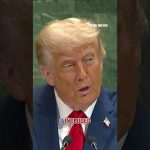In the world of media, courage often wears many faces. Some journalists stride into the spotlight unafraid, while others stick to the safe and well-lit paths. In a fresh wave of commentary, a striking contrast has emerged between those who brave the unpredictable realm of open debate and those who cling to the cozy confines of familiar networks. It’s an interesting dynamic, especially when one particular figure finds herself in the firing line for her apparent lack of bravery.
The scene is set with a comparison that has ruffled a few feathers. One commentator brought up a familiar name—Charlie. Unlike others, Charlie was characterized as someone who was not simply fearless; instead, he was “bigger than fearless.” He took on controversial subjects and engaged in debates, understanding the risks that came with it. In contrast, there appears to be a pundit who prefers the calmer waters of programming on MSNBC and The View, steering clear of the fiery exchanges seen on platforms like Joe Rogan’s podcast or the Fox News network.
This situation took an intriguing twist when a peculiar statement came to light. In a conversation with Rachel Maddow, who, by the way, has been in the public eye for her own reasons, this figure expressed hesitance about hiring gay individuals for her team. What was particularly striking—and perhaps a little ironic—was her justification for that decision. Instead of owning her choice, she deflected responsibility, claiming that hiring a more competent gay person posed a risk to her success.
It seems this individual believes that playing it safe is the best strategy. However, throwing shade at the American public while doing so raises some eyebrows. The argument brought forth hinted that, if she were a straight white male, she would have made a different choice. This line of thinking sparked a few laughs, as it seemingly missed the mark on logic entirely—biologically speaking, it doesn’t quite add up. She has turned the narrative around; in her view, responsibility for alleged bigotry somehow lies with others, not with her.
The crux of her philosophy seems rooted in the “Diversity, Equity, and Inclusion” mindset—a framework aimed at creating opportunities for all but, in this case, becoming a shield against accountability. Rather than fostering an environment where everyone can thrive, this mindset appears to have morphed into a kind of cowardice disguised as virtue. After all, who’s actually being brave here? It seems clear that when it comes to taking risks, some prefer the comfort of familiar faces and ideals rather than the challenge of engaging with a diverse and dynamic world.
This unfolding storyline is not just about media personalities; it is a reflection of broader themes in society. The notion that avoiding tough conversations or different perspectives somehow makes one less of a bigot is a slippery slope. Ultimately, it looks like this debate is far from over, as daring to step outside of one’s comfort zone might just be the antidote to the current climate of fear and division in media and beyond.




